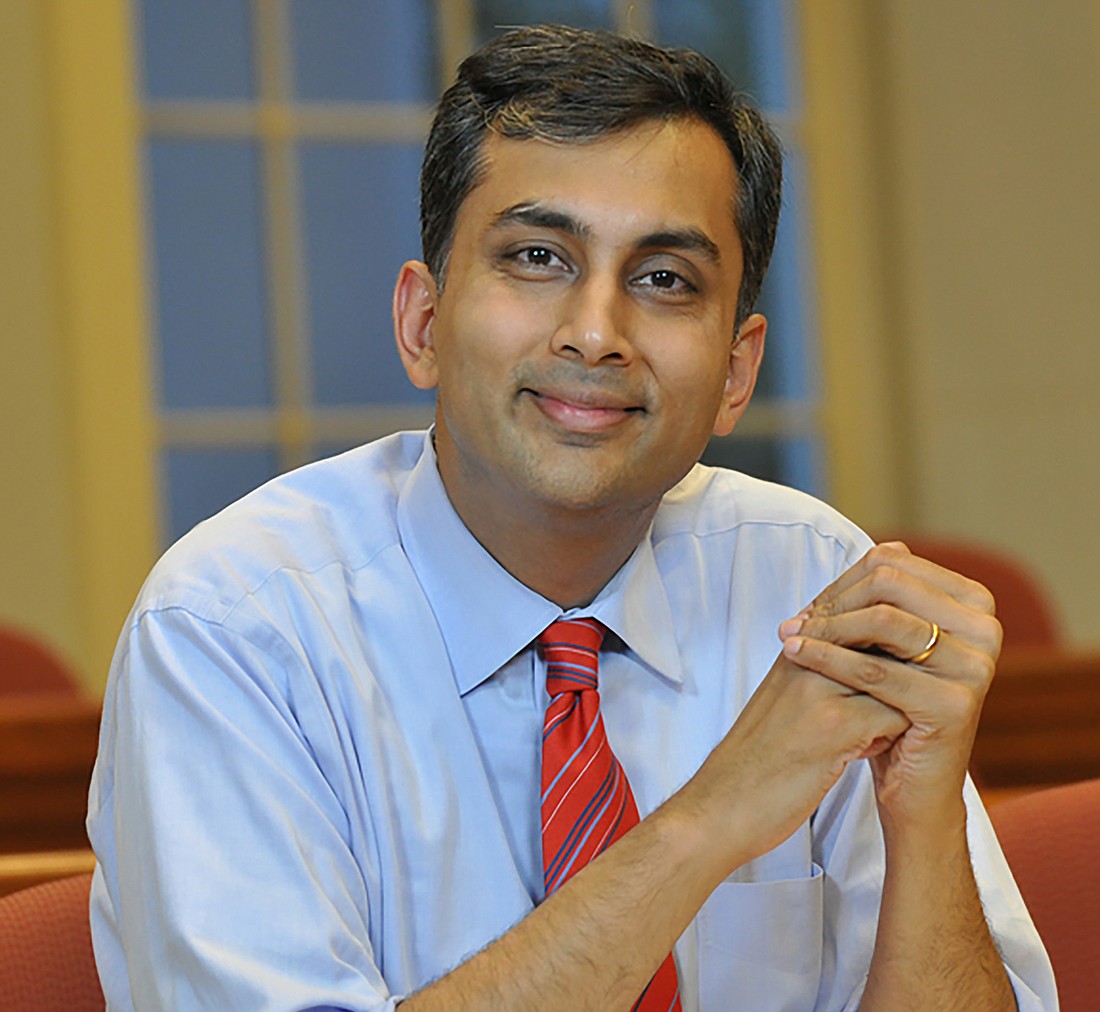
You may or may not be happy with the new federal tax law, but as far as Harvard University finance professor Mihir Desai is concerned, something had to be done with the U.S. corporate tax system.
“It was broken, clearly broken,” Desai said Tuesday at a World Affairs Council of Jacksonville luncheon at The River Club Downtown.
He said the world had changed a lot since the last major U.S. tax reform legislation, in 1986, and while other countries altered their policies to meet changing times, the U.S. had not.
“We were out of whack in a very significant way with the rest of the world,” he said.
The most significant change is the sharp reduction in the federal income tax rate for corporations from 35 percent to 21 percent. That will likely stop U.S. companies from moving operations overseas to avoid taxes, Desai said.
The legislation also allows corporations to expense certain investments immediately, rather than amortizing the expense over a number of years.
“We’re moving to a place where the United States is going to be a better place for headquarters and a better place for investment,” he said.
“We need corporations to be investing in this country.”
The new law may prompt some businesses to alter their corporate structure, Desai said.
“Now you’re going to have to think hard about what you want to be,” he said.
“You may want to become a corporation. That could be an attractive thing to do.”
For example, an individual working for himself or herself may want to become a corporation to take advantage of the 21 percent tax rate. Or a regular employee of a company may seek to become a contractor.
The top tax rate for individuals is 35 percent under the new law.
While Desai likes some provisions affecting businesses, he gives the new law lower grades for individual reforms. He said there should be a higher tax bracket for the very top tier of incomes, and he would have liked to see the government do more for low-income people.
“We’re going to make things by and large less progressive on the individual side,” he said.
“There are wonderful things about it (the tax law) and I think there are some really terrible things.”
Desai does expect corporations to pass on some of their tax savings to their employees, but “not anywhere on the order of what has been advertised” by supporters of the bill.
Desai said the legislation reminds him in some ways of 1981, when Congress passed a tax reform law that had to be revised again in 1983 before the major overhaul in 1986.
“This is a hastily put together plan,” he said.
Desai expects Congress to revisit tax reform but with politicians less willing to compromise with the opposition than they were in the 1980s, he admits it could be difficult.
But despite its problems, Desai saw enough in the new legislation to believe progress has been made.
“We did something on the corporate side that I think makes sense,” he said.
“I think it is a transformative piece of legislation by any measure.”